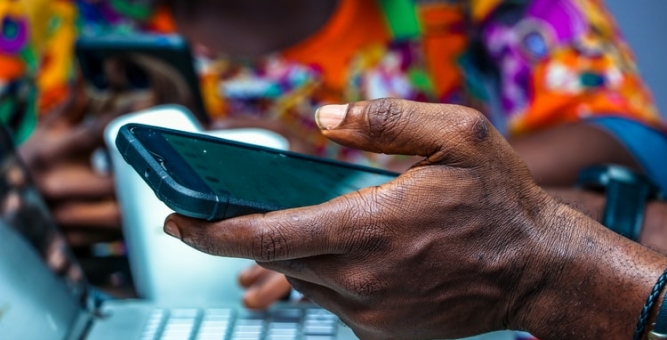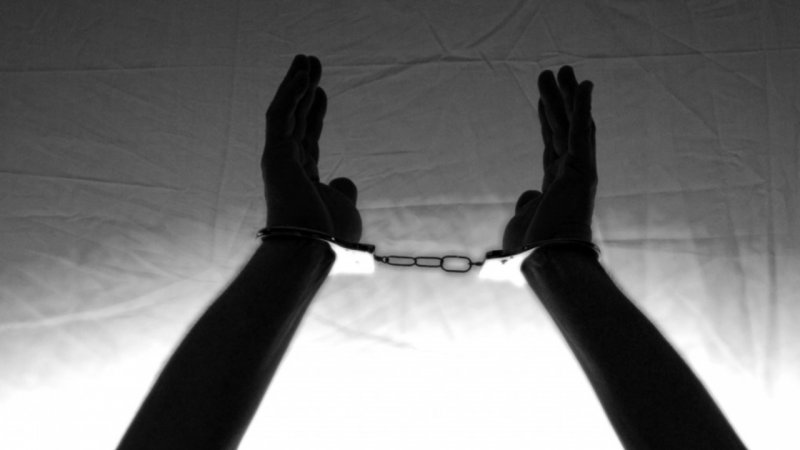By Ashnah Kalemera and Simone Toussi |
The growth in usage of digital technologies in Africa is fuelling technology-enabled human trafficking activities in the region. But these very technologies can be leveraged to fight the vice that is sweeping across the continent..
With support from the Africa Digital Rights Fund (ADRF), the African Legal Think Tank on Women’s Rights (ALTOWR) has studied the role of the internet in fuelling human trafficking, including online recruitment and advertisement in Democratic Republic of Congo (DR Congo), The Gambia and Mauritania. Besides the results being enlightening, the project has produced a curriculum for skills and knowledge building on how the internet can be used to fuel or to combat human trafficking.
According to the annual Trafficking in Persons Report, many African countries experience diverse forms of human trafficking. In 2020, for every 10 victims of trafficking, five were adult women and two were girls. DR Congo, The Gambia and Mauritania are among the countries on the continent where the vice is rife.
The Global Slavery Index, which measures where modern slavery (forced labour, human trafficking and forced marriages) occurs and how governments are responding, ranked the three countries 12th, 58th and 6th respectively, out of 167 globally. With national internet penetration rates of 19.2% in DR Congo, 63% in Mauritania and 19% in The Gambia, human trafficking networks in these countries are increasing relying on the internet and social media platforms to recruit victims.
In the DR Congo, there are over one million estimated victims, with most trafficking involving “forced labour in artisanal mining sites, agriculture, domestic servitude, or armed groups recruiting children in combat and support roles, as well as sex trafficking.”
Indeed, ALTOWR’s study found that population displacement due to the conflict in the DR Congo had created a favourable environment for exploitation of vulnerable communities. The study details cases of sexual slavery and forced marriages in the country’s capital Kinshasa, as well as in neighbouring Rwanda; illegal migration to South Africa via Burundi and Tanzania; and abductions, resulting in sexually transmitted diseases, including HIV/ AIDS, unwanted pregnancies, and hefty ransom payments. In all case studies, the perpetrators used social media platforms including Facebook and Whatsapp to lure victims.
Read more: Le Rôle de l’internet dans la Croissance de la Traite des Etres Humains en République Démocratique du Congo
In The Gambia, an estimated 11,000 individuals are victims of modern slavery, out of a total population of just under two million. Gambian women, girls and to some extent boys are subjected to sex trafficking and forced labour fuelled by the country’s thriving tourism sector.
Gambia’s law against human trafficking was passed in 2007 and the country established the National Agency Against Trafficking in Persons, whose operations commenced in 2013 but are restricted by limited resources. As such, According to the ALTOWR study, efforts to prosecute perpetrators of human trafficking are “minimal.” Among the cases investigated, particularly for Gambians trafficked to the Middle East, travel logistics are arranged online.
Read more: The Role of the Internet in Fueling the Growth of Human Trafficking in The Gambia
Meanwhile, despite reforms against trafficking and smuggling of persons in Mauritania, modern slavery “is entrenched in society with slave status being inherited and deeply rooted in social castes and wider social system” in the country where there are an estimated 90,000 victims, out of a population of four million. Located between North Africa and Sub-Saharan Africa, with a long and porous border, Mauritania is a transit route for smugglers and traffickers between Africa, Europe and the Middle East.
Read more: Le Rôle de l’internet dans la Croissance de la Traite des Etres Humains en Mauritanie
| In Africa, human traffickers use the Internet to identify, recruit, coerce and control victims as well as to advertise the services or products resulting from their exploitation. They also use it to launder the illicit revenue earned from their activities. Migrant smugglers use the Internet for similar purposes. Online African Organized Crime from Surface to Darkweb, 2020 |
The studies recommend that government, civil society and other stakeholders in the three countries leverage online platforms for prevention and protection campaigns as well as outreach, including on risks, avenues for reporting and access to support services (psychosocial, mental, physical and legal including referrals). On prosecution, recommendations include the need for skills and knowledge building for enforcement authorities to understand human trafficking via the internet. The studies also recommend leveraging technology for witness protection during criminal proceedings and the enactment of specific legislation on online sex crimes and cyber trafficking.
The findings and recommendations of the studies fed into the development of country-specific curriculums that informed three in-country trainings targeted at survivors and networks working to combat human trafficking. The aim was to equip them with tools to influence prevention and protection strategies. The trainings reached a total of 63 beneficiaries including youth groups, women’s rights organisations, and civil society organisations, and were preceded by a Trainings of Trainers (ToT) in each country.
The discussions at the trainings fed into two regional roundtables [French and English] which explored ways to improve and implement the existing legal frameworks, strengthen border controls, and multi-stakeholder efforts to eradicate socio-cultural constraints and practices that undermine victims’ rights. Representatives in the roundtables were drawn from the African Union, the North-South Center Council of Europe, the Counter Trafficking Unit of the International Organization for Migration, alongside several think-tanks, networks, and civil society organisations.
The engagements resulted in the establishment of country task forces to support the development of collaborative action plans that leverage the internet to push back against human trafficking. The study results will continue to inform the work by ALTOWR and CIPESA in understanding how digital technologies can best be leveraged to combat human trafficking in Africa.




